Collage Day School provides a rich, integrative curriculum personalized for each student to encourage creative, independent thinking, instead of “one size fits all” curriculum. Tiffany Clark, Collage’s director of curriculum and instruction, explains that the school’s curricula will be focused on student-centered learning in which students, teachers and parents are active participants in the learning process. Students will receive differentiated curricula such as Morning Meeting, Daily 5, Math Workshop and Writer’s Workshop.
Morning Workshop starts each day with students and teachers gathering together in a circle for 20 to 30 minutes and interacting with each other to build a strong sense of community and to set children up for success socially and academically. Students share information about important events in their lives. Listeners often offer empathetic comments or ask clarifying questions. Everyone participates in a brief, lively activity that fosters group cohesion and helps students practice social and academic skills.
Morning Workshop is one example of the concept of a responsive classroom, an evidence-based approach to elementary and middle school teaching that focuses on the strong link between academic success and social-emotional learning (SEL).
Independent research has found that the Responsive Classroom approach is associated with higher academic achievement in math and reading, improved school climate, and higher-quality instruction. It has been described by the Collaborative for Academic, Social, and Emotional Learning (CASEL) as one of the most “well-designed evidence-based social and emotional learning (SEL) programs.”
Daily 5 teaches comprehension, accuracy and fluency and expands vocabulary. Students select from five authentic reading and writing choices, working independently toward personalized goals, while the teacher meets individual needs through whole-group and small-group instruction, as well as one-on-one conferring. These choices include
- Read to Self
- Work on Writing
- Read to Someone
- Listen to Reading
- Word Work
Math Workshop model is based on the belief that all students can and must learn math, that the important work of math is thinking and that all learners are capable of mastery. Teachers serve as coaches, while students engage as a community of learners and work together so that all “get it” together. Students will receive differentiated instruction targeted at their level. Teachers create and facilitate learning experiences that invite individuals to construct and negotiate deep conceptual understanding, as well as develop fluency with numbers. Workshops offer students the time to explore, create and learn.
In the areas of Science and Social Studies, students will be exposed to a curriculum that infuses kinesthetic learning approaches making them active participants in the learning. In addition, teachers implement Genius Hour, an approach that allows students to explore their own passions and encourages creativity in the classroom. It provides students a choice in what they learn during a set period of time during school.
Teachers will also use Writer’s Workshop developed by educator Lucy McCormick Calkins, the visionary founding director of Teachers College Reading and Writing Project. Begun in 1981, the think tank and teacher training institute has since trained hundreds of thousands of educators across the country. Calkins is one of the original architects of the “workshop” approach to teaching writing to children, which holds that writing is a process, with distinct phases, and that all children, not just those with innate talent, can learn to write well. At the heart of her philosophy is the notion that children ought to be given a “voice,” encouraged to discover and refine their own personal writing style, as they compose “stories that matter.” Calkins is a “constructivist,” believing that children should generate their own texts, using material from their own lives.
Students will be given prescriptive homework to encourage them to read daily and study math fact, if needed. Teachers will communicate if a need arises for individual students to receive additional assistance at home or in enhanced learning classes and will provide resources. To encourage reading at home, students will have the ability to participate in school wide incentive programs that will occur quarterly and annually.
Parent Resources:


